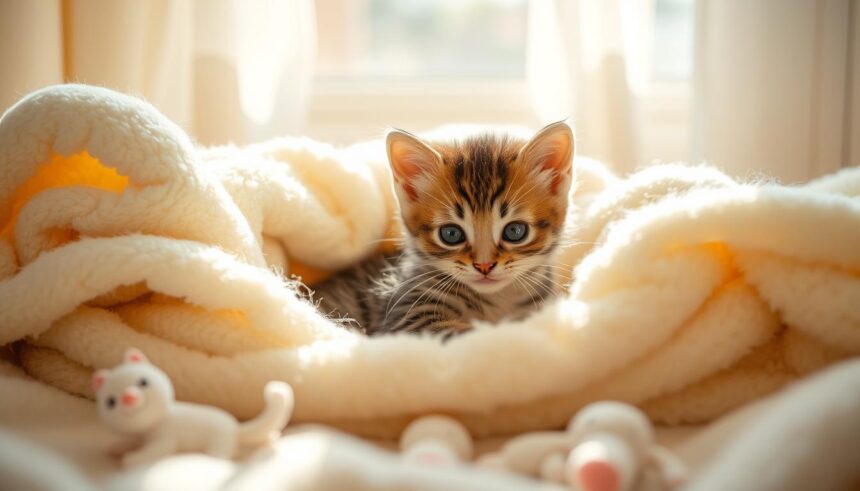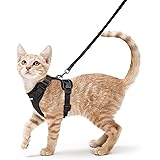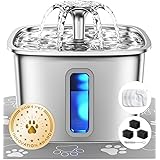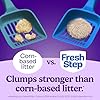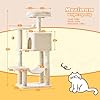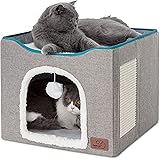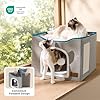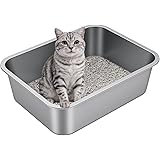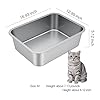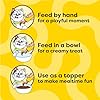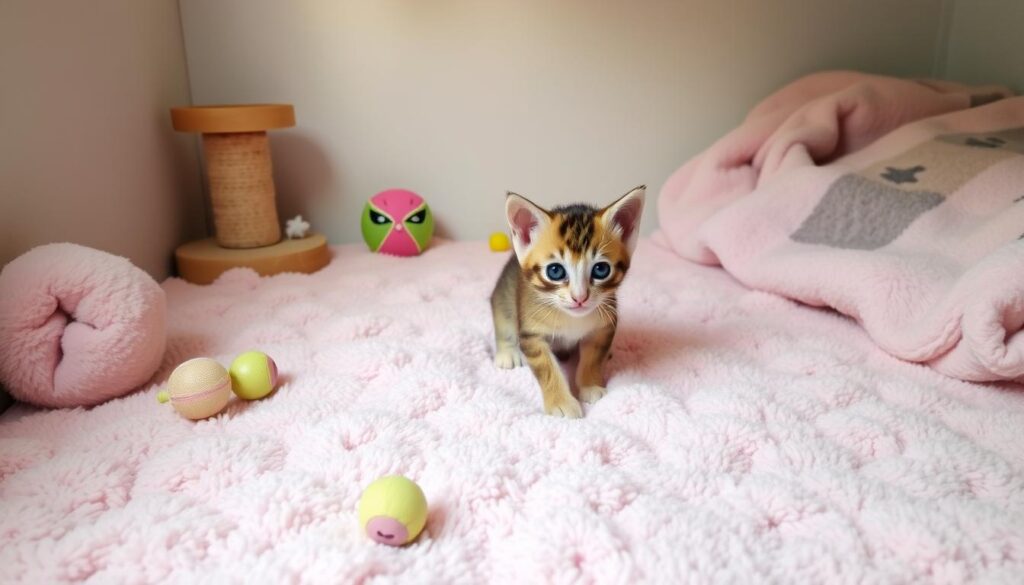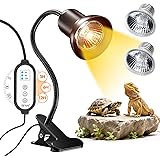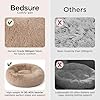A 3 week old kitten is growing fast and needs a safe place to grow. They start to explore and their eyes are open and blue. They also begin to walk and play.
It’s important to know how to care for a 3 week old kitten. They need the right food, a clean home, and lots of playtime. This helps them grow strong and healthy.
Kittens at this age need to be fed often. They should eat every four to five hours. It’s also key to keep them warm and cozy. The best temperature for them is about 80 degrees Fahrenheit.
Introduction to 3 Week Old Kitten Development
Kittens start to develop their skills at three weeks. They explore and their eyes are fully open. A safe and caring home is vital for their growth.
3 week old kitten care is all about feeding and health. They need the right food and lots of love. This helps them grow strong and healthy.
Key Takeaways
- 3 week old kittens require a safe and nurturing environment to grow and thrive.
- Understanding 3 week old kitten care is crucial to ensure they receive the necessary nutrition and socialization.
- Kittens at this age should be fed using kitten-specific bottles, and their feeding frequency should be every four to five hours.
- Dehydration is one of the biggest threats to kittens, along with chilling.
- Monitoring kitten development milestones is essential to track their growth and development.
- 3 week old kitten care requires attention to their feeding frequency, nutrition, and overall health.
Understanding Your 3 Week Old Kitten’s Development
At three weeks, kittens are growing fast. Their eyes start to open, and they notice their world more. It’s key to watch their growth and see signs of health, like eating well and playing.
Kittens start to move and play more. They become curious and playful. 3 week old kitten development is a big time. Giving them the right care is very important.
rabbitgoo Cat Harness and Leash for Walking, Escape Proof Soft Adjustable Vest Harnesses for Cats, Easy Control Breathable Reflective Strips Jacket, Black, XS
$13.58 (as of February 26, 2026 17:34 GMT +00:00 – More infoProduct prices and availability are accurate as of the date/time indicated and are subject to change. Any price and availability information displayed on [relevant Amazon Site(s), as applicable] at the time of purchase will apply to the purchase of this product.)Stainless Steel Litter Box | XL Enclosed Cat Litter Boxes with Lid for Big Cats | High Sided, Anti-Urine Leakage | Non-Stick Bottom & Includes Litter Mat & Metal Scoop
$50.98 (as of February 26, 2026 18:24 GMT +00:00 – More infoProduct prices and availability are accurate as of the date/time indicated and are subject to change. Any price and availability information displayed on [relevant Amazon Site(s), as applicable] at the time of purchase will apply to the purchase of this product.)Veken Innovation Award Winner Stainless Steel Cat Water Fountain, 108oz/3.2L Automatic Pet Fountain Dog Water Dispenser with 3 Replacement Filters & Silicone Mat, Gifts for Cats, Dogs (Silver)
$26.99 (as of February 26, 2026 17:34 GMT +00:00 – More infoProduct prices and availability are accurate as of the date/time indicated and are subject to change. Any price and availability information displayed on [relevant Amazon Site(s), as applicable] at the time of purchase will apply to the purchase of this product.)Fresh Step Clumping Cat Litter, Multi-Cat, Long Lasting Odor Control Kitty Litter with Activated Charcoal, Low Dust Formula, 14 lb
$9.54 (as of February 26, 2026 17:32 GMT +00:00 – More infoProduct prices and availability are accurate as of the date/time indicated and are subject to change. Any price and availability information displayed on [relevant Amazon Site(s), as applicable] at the time of purchase will apply to the purchase of this product.)Sweetcrispy 44 Inch Cat Tree Tower, Cat Climbing Tower with Natural Sisal Scratching Posts, Hammock, Pet Condo for Indoor Cats and Kittens Play, Beige
$29.98 (as of February 26, 2026 18:24 GMT +00:00 – More infoProduct prices and availability are accurate as of the date/time indicated and are subject to change. Any price and availability information displayed on [relevant Amazon Site(s), as applicable] at the time of purchase will apply to the purchase of this product.)Bedsure Cat Beds for Indoor Cats – Large Cat Cave for Pet Cat House with Fluffy Ball Hanging and Scratch Pad, Foldable Cat Hideaway, 16.5×16.5×13 inches, Grey
$29.99 (as of February 26, 2026 17:34 GMT +00:00 – More infoProduct prices and availability are accurate as of the date/time indicated and are subject to change. Any price and availability information displayed on [relevant Amazon Site(s), as applicable] at the time of purchase will apply to the purchase of this product.)Purina Friskies Wet Cat Food Variety Pack, Shreds With Beef, Turkey and Cheese Dinner, Chicken and Salmon Dinner, and With Ocean Whitefish and Tuna – (Pack of 40) 5.5 oz. Cans
$32.76 (as of February 26, 2026 17:34 GMT +00:00 – More infoProduct prices and availability are accurate as of the date/time indicated and are subject to change. Any price and availability information displayed on [relevant Amazon Site(s), as applicable] at the time of purchase will apply to the purchase of this product.)Dr. Elsey’s Ultra UnScented Clumping Clay Cat Litter 40 lb. Bag
$22.99 (as of February 26, 2026 17:32 GMT +00:00 – More infoProduct prices and availability are accurate as of the date/time indicated and are subject to change. Any price and availability information displayed on [relevant Amazon Site(s), as applicable] at the time of purchase will apply to the purchase of this product.)Blue Buffalo Bursts Crunchy & Creamy Cat Treats, Great for Training, Paw-Lickin’ Chicken, 5-oz Bag
$2.98 (as of February 26, 2026 17:34 GMT +00:00 – More infoProduct prices and availability are accurate as of the date/time indicated and are subject to change. Any price and availability information displayed on [relevant Amazon Site(s), as applicable] at the time of purchase will apply to the purchase of this product.)Amazon Echo Show 5 (newest model), Smart display, Designed for Alexa+, 2x the bass and clearer sound, Charcoal
$89.99 (as of February 26, 2026 17:32 GMT +00:00 – More infoProduct prices and availability are accurate as of the date/time indicated and are subject to change. Any price and availability information displayed on [relevant Amazon Site(s), as applicable] at the time of purchase will apply to the purchase of this product.)Some important milestones include:
- Eliminating waste on their own without the help of a caregiver
- Drinking more at each feeding, approximately four to five times a day if they are being bottle-fed
- Weight increase to around 15 ounces
- Introduction to solid food, typically wet food mixed with kitten formula
Knowing these milestones helps you care for your kitten. This way, you can help them grow up happy and healthy.
| Age | Weight |
|---|---|
| Week 1 | 5.3-8.8 ounces |
| Week 2 | 8.8-12.3 ounces |
| Week 3 | 12.3-15.9 ounces |
Essential Care Requirements at Three Weeks
At three weeks old, kittens need essential care for kittens to grow right. They need good food and always access to fresh water. 3 week old kitten care also means socializing them gently to help with social skills.
Some key kitten care requirements at three weeks old include:
- Feeding: Kittens may need to be bottle-fed every two to four hours if the mother is not present.
- Hydration: Ensure access to fresh water at all times.
- Socialization: Handle kittens often to encourage social development.
Watching their health and growth is also crucial. By three weeks, kittens can start using a litter box on their own. Bottle-feeding can then be done every four to six hours. Remember, 3 week old kitten care is about the right mix of food, water, and social time for a healthy life.
When caring for your three-week-old kitten, they will start to respond to sounds and move around. They will also learn to poo on their own. With the right essential care for kittens, they will grow into happy and healthy adult cats.
Feeding Schedule and Nutrition Guide
At three weeks old, kittens start to move from milk to solid food. It’s key to give them high-quality kitten food that fits their nutritional needs. A kitten feeding schedule helps guide you through this. Kittens need to eat every 5-6 hours at this age.
When feeding a 3 week old kitten, keep an eye on their health. Look out for signs like diarrhea or vomiting. Kittens need a diet rich in protein, fat, and carbs. Start adding wet food to their diet, as it’s more nutritious than dry food.
- 2.5-3 weeks: Feed every 4 hours
- 3-4 weeks: Feed every 6 hours
- 4-5 weeks: Introduce wet food and feed every 8 hours
For more info on kitten feeding schedule and nutrition, check out catsjoys.com. They have great tips on feeding your kitten.
| Age | Feeding Frequency | Food Type |
|---|---|---|
| 2.5-3 weeks | Every 4 hours | Milk or formula |
| 3-4 weeks | Every 6 hours | Introduction to wet food |
| 4-5 weeks | Every 8 hours | Wet food and solid food |
The Importance of Hydration
Proper kitten hydration is key for 3 week old kittens’ health and growth. At this age, kittens’ kidneys are still developing. They can’t concentrate their urine well, so it’s vital to watch their water intake. Water is crucial for kittens to avoid dehydration and support their growth.
For 3 week old kitten hydration, make sure they always have fresh water. Kittens usually start drinking water at 4 weeks. But, they might show interest in water earlier. As a responsible owner, provide a clean, easy-to-reach water source to keep them hydrated.
Sheba Premium Puree Cat Treats Lickable Roasted Chicken Flavor, Smoked Salmon Flavor, and Seared Tuna Flavor, 0.49 oz. Tubes, 24 Count
$13.98 (as of February 26, 2026 18:24 GMT +00:00 – More infoProduct prices and availability are accurate as of the date/time indicated and are subject to change. Any price and availability information displayed on [relevant Amazon Site(s), as applicable] at the time of purchase will apply to the purchase of this product.)Secopad 12 PCS Large Cat Scratch Furniture Protector, Transparent Couch Protector from Cat Claws, Single-Sided Self Adhesive Anti Pet Deterrent Sofa Cover, 17IN
$12.99 (as of February 26, 2026 17:34 GMT +00:00 – More infoProduct prices and availability are accurate as of the date/time indicated and are subject to change. Any price and availability information displayed on [relevant Amazon Site(s), as applicable] at the time of purchase will apply to the purchase of this product.)Hill’s Science Diet Adult 1-6 Premium Nutrition Dry Cat Food, Chicken Recipe, 4 lb. Bag
$21.99 (as of February 26, 2026 17:33 GMT +00:00 – More infoProduct prices and availability are accurate as of the date/time indicated and are subject to change. Any price and availability information displayed on [relevant Amazon Site(s), as applicable] at the time of purchase will apply to the purchase of this product.)Idymere Stainless Steel Litter Box with High Sided, Metal Cat Litter Box, Odor-Free, Non-Stick Litterbox Pan, Easy to Clean Pet Supplies Toilet Tray for Indoor Cats, Kittens or Multicat Homes
$18.59 (as of February 26, 2026 17:34 GMT +00:00 – More infoProduct prices and availability are accurate as of the date/time indicated and are subject to change. Any price and availability information displayed on [relevant Amazon Site(s), as applicable] at the time of purchase will apply to the purchase of this product.)Blue Buffalo Tastefuls Purées Natural Cat Food Complement with 5 Ingredients, Chicken, Tuna, Beef, 3-oz Resealable Pouches, 12-ct Variety Pack
$25.49 (as of February 26, 2026 18:24 GMT +00:00 – More infoProduct prices and availability are accurate as of the date/time indicated and are subject to change. Any price and availability information displayed on [relevant Amazon Site(s), as applicable] at the time of purchase will apply to the purchase of this product.)Veken Innovation Award Winner Stainless Steel Cat Water Fountain, 108oz/3.2L Automatic Pet Fountain Dog Water Dispenser with 3 Replacement Filters & Silicone Mat, Gifts for Cats, Dogs (Silver)
$26.99 (as of February 26, 2026 17:34 GMT +00:00 – More infoProduct prices and availability are accurate as of the date/time indicated and are subject to change. Any price and availability information displayed on [relevant Amazon Site(s), as applicable] at the time of purchase will apply to the purchase of this product.)Temptations Puree Kitten Treats Lickable, Chicken and Salmon Variety Pack, 24 Pouches
$11.88 (as of February 26, 2026 17:34 GMT +00:00 – More infoProduct prices and availability are accurate as of the date/time indicated and are subject to change. Any price and availability information displayed on [relevant Amazon Site(s), as applicable] at the time of purchase will apply to the purchase of this product.)Cat Repellent Outdoor to Keep Cats Away, Natural Peppermint Oil Cat Deterrent Outdoor and Indoor, Keep Cats Out of Yard Permanently, Protect Your Yard and Furniture (Green,10 Count (Pack of 1))
$17.99 (as of February 26, 2026 17:34 GMT +00:00 – More infoProduct prices and availability are accurate as of the date/time indicated and are subject to change. Any price and availability information displayed on [relevant Amazon Site(s), as applicable] at the time of purchase will apply to the purchase of this product.)Dr. Elsey’s Ultra UnScented Clumping Clay Cat Litter 40 lb. Bag
$22.99 (as of February 26, 2026 17:32 GMT +00:00 – More infoProduct prices and availability are accurate as of the date/time indicated and are subject to change. Any price and availability information displayed on [relevant Amazon Site(s), as applicable] at the time of purchase will apply to the purchase of this product.)Purina Friskies Dry Cat Food Seafood Sensations With Salmon, Tuna, and Shrimp Flavors – 22 lb. Bag
$21.28 (as of February 26, 2026 17:32 GMT +00:00 – More infoProduct prices and availability are accurate as of the date/time indicated and are subject to change. Any price and availability information displayed on [relevant Amazon Site(s), as applicable] at the time of purchase will apply to the purchase of this product.)Here are some key points to consider when it comes to kitten hydration:
- Kittens should drink around 2.3 ounces of water daily
- They should have access to fresh water at all times
- Monitor their hydration levels closely to prevent dehydration
By focusing on 3 week old kitten hydration and a nutritious diet, you support their growth. A well-hydrated kitten is a happy and healthy kitten.
| Age | Water Intake |
|---|---|
| 3 weeks | Not typically drinking water yet |
| 4 weeks | Starting to drink water (around 2.3 ounces daily) |
| 6 months | Drinking around half a cup of water daily |
Sleep Patterns and Overnight Care
Kittens at three weeks old are still figuring out how to sleep. It’s important to know their sleep patterns to care for them at night. They usually sleep for 18-20 hours a day, with short breaks for activity.
It’s key to make a cozy bed for them. Since they can’t control their body heat, keeping them warm is crucial. A comfy bed with good bedding helps prevent them from getting too cold and supports their growth.
Kittens sleep in short periods, day and night. This is normal and important to respect. Can 3 week old kittens go all night without eating? Usually, they need to eat every 5-6 hours. But, each kitten is different, and their needs vary.
Creating a Safe Sleep Environment
To make a safe sleep spot, consider these steps:
- Provide a warm and comfortable bed
- Ensure access to food and water throughout the night
- Monitor their sleep patterns and adjust as needed
By following these tips, you can help your kitten grow healthy. Remember, caring for kittens at night is vital. Knowing their sleep patterns is key to giving them the best care.
Bathroom Habits and Litter Training
At three weeks old, kittens start to show their bathroom habits. It’s key to watch their elimination patterns for kittens to keep them healthy. Kittens usually start using the litter box around this age. It’s important to give them a safe and clean place to go.
3 week old kitten bathroom habits can be hard to predict. But with patience and consistency, you can teach your kitten good habits.

- 🐱 【Multifunctional Activity Center】The cat Tree provides 3 top perches platforms and two cozy condo. Whether your kitten wants to stretch out on a spacious perch, curl up in a plush hole room, or release the urge to scratch on a sisal pole, this multifunctional cat tree tower works perfectly as a recreation paradise,which can make your fur baby's day full of fun and excitement!two toys gives them a unique way and Fun to play!
- 🐱【 Large Space Vertical】Because of its compact footprint and ability to conserve floor space, the cat tree design offers a large amount of vertical space. Every cat can have their own zone thanks to the cat jumping platform, which is another way that modern cat trees promote indoor cat peace. Maximum Load Capacity: 44 lbs. If your cat is too big for this cat tree, please buy one for tiny and medium-sized cats!
- 🐱 【Stable Construction】Our Cat Tower is made of high-quality particle board with skin friendly plushy faux-fur cover to keep your cat warm and comfortable. The cat activity tree has a wall anchor strap which provides a good double security protection. You don't have to worry that the cat tree will overturn or shake accidentally.Give your cat the best protection!ideal for average kittens and cats.
- 🐱 【Posts for Scratching Covered in Sisal 】These are scratching surfaces that are integrated into the framework. Cats love to bury their claws in sisal because it's a sturdy substance with a coarse texture. Our cat tree promotes healthy scratching habits and helps discourage cats from damaging furniture by offering dedicated spaces for them to scratch.
- 🐱 【Simple assembly】We understand that convenience is important to pet owners, which is why we made our cat tree simple to assemble in a matter of minutes. You can quickly provide your kitties a stimulating environment by following the simple setup instructions and using the available tools. Please feel free to contact us with any questions you may have about our cat tree, and we will respond to you within a day!

- Teething Fun: Ideal for kittens and cats alike, these chew toys are an essential addition to your kitty’s dental care. With natural gall fruit and rope design, the toys are perfect for teething and teeth cleaning, they combat tartar and freshen breath, making dental hygiene a fun activity for your little one!
- Infused with Catnip Aroma: The included catnip bag emits a soothing aroma that's irresistible to felines, ensuring these toys are a calming and engaging presence for indoor play. Our cat toys provide the calming, meow-inducing fun every kitten craves, along with a funny and interactive experience.
- Energetic Exercise: Promote healthy exercise and self-play with our toys' appealing textures and tassels. They’re designed to entice your kitty to bite and play aggressively without harm, offering hours of exercise and self-amusement, keeping your cat active and happy.
- Quiet Play: These soft colorful ropes provide enriching quiet playtime without bothering cat owner's sleep or life. Your kitty will love the funny snake-like shapes, enhancing their playtime with every pounce and bite.
- Safe and Organic: These chew toys, handcrafted without any metal wire and using organic cotton rope, are safe for all cats. Paired with a reusable catnip bag, they’re an essential, eco-friendly addition to your cat’s enrichment collection.

- MADE WITH WHOLESOME INGREDIENTS YOU CAN TRUST: Every Inaba product is made with yummy ingredients including farm-raised chicken and/or wild-caught tuna
- KEEP OUR FELINE HYDRATED WITHOUT ADDING CALORIES: Each delicious, creamy Churu tube contains 91% moisture and only 6 calories (a tenth of the calories of traditional dry cat treats), which makes it a healthy snack you can feel good about feeding
- FREE OF THE BAD STUFF: Your feline friend is important to us, which is why we've kept things like grains, preservatives, artificial colors and carrageenan out of our cat treats, but we added things like Vitamin E for immunity
- HAVE THEM EATING OUT OF YOUR HAND: These lickable purée meat tubes for cats were designed to be fed by hand, as an interactive way to spend time with your feline, but you can use as a wet/dry cat food topper or as a way to disguise medication
- ADD SOME VARIETY TO YOUR CAT'S LIFE: Available in eleven savory flavors, cats of all stages (kitten to senior) will be able to find a flavor they love

- FREEZE-DRIED RAW MINNOWS CAT TREAT: Vital Essentials Freeze Dried Cat Treats pack more protein than industry standard into every bite to deliver the peak vitality your dog deserves. Our natural freeze-dried raw cat treats are made from responsibly sourced premium minnows.
- BETTER PROTEIN = BETTER BENEFITS: The best freeze dried cat treats on the market use premium butcher cut raw protein to unlock the benefits of naturally occurring vitamins and minerals in raw muscle and organs, because pets deserve the energetic playtimes, healthy skin, shiny coats, strong teeth, and essential gut health that a high-protein diet delivers.
- PROUDLY AMERICAN CRAFTED: All our cat treats and food are responsibly sourced and humanely harvested to ensure the quality of our proteins. We go above industry standards to preserve flavor and ensure the highest quality of protein and nutrients in every Vital Essentials product.
- MADE WITHOUT: Cat treat additives, fillers, dyes, flavorings, artificial preservatives, grains, or rendered by-products. Vital Essentials also offers the widest variety of single-protein raw cat food and treats on the market—great for picky eaters and cats with allergies!
- RAW CAT TREATS FREEZE DRIED FOR PEAK FRESHNESS: Our protein is frozen within 45-minutes of harvesting to lock in peak nutrients, flavor, and freshness. A slow-freeze-dry ensures minimal processing, while preserving the vital nutrients that our pets deserve, the way nature intended.

- Cats Lose Their Cool: Just shake the pack, and your favorite feline will come running for their favorite cat treats
- Purr-fect Texture: Cat treats are crunchy on the outside and soft on the inside, making it the cat snack that keeps them coming back
- Under 2 Calories Per Treat: Each cat treat is under 2 calories, so these little crunchy goodies make the perfect snack or reward that can be given daily
- Trifecta of Tempting Cat Treats: Catnip Fever is a delicious cat snack with a mix of chicken, catnip, and cheese flavors your cat will love
- Value-Sized, Resealable Tub: Treat ’em again and again using the resealable tub that is perfect for keeping cat paws off when you’re not watching

- Award-Winning Product. Veken is proud to be a 2024 Category Winner of the Pet Innovation Awards, an honor given to only the most forward-thinking products within the rapidly expanding Pet industry.
- Upgraded Stainless Steel. Opt for a stronger, more hygienic version of our best selling pet fountain. Easy to clean and BPA-free, our stainless steel design offers the elevated and modern look you want with additional benefits.
- Large Capacity Water Tank. Worry less about your furry friend running out of water. Our pet fountain features a generously sized water reserve tank to help you avoid frequent refilling, ensuring your pets are healthy, hydrated, and happy.
- Advanced 5-Stage Filtration. Our upgraded system with silver, scale inhibitors, and activated carbon delivers fresh, clean water for up to 3 weeks. For optimal performance and your pet’s health, we recommend using softened or filtered water.
- LED Light Feature. Illuminate your pet’s favorite drinking spot with our optional on/off light feature. Designed for assisted visibility of water level and fountain location, our gentle light is perfect for avoiding spills and easy refilling.

- 4-in-1 Monitoring Tools: Sealed, hygienic strips for comprehensive cat wellness indicator checks.
- Simple At-Home Use: User-friendly steps with clear guidance—no professional training needed.
- Quick Readings: Obtain consistent readings at home in 10-20 minutes to stay attentive to your cat’s needs.
- Gentle and Non-Intrusive: Designed for minimal stress, using easy sample collection (feces/swabs) suitable for cats.
- Hygienic Components: Individually sealed tools and pre-measured solution for clean, safe use at home.

- 【Interactive Cat Toys】High quality aluminum alloy shell which equipped with metal clip design and three adjustment modes, only need to slide adjustment, no need to long press,in addition,Interactive cat toys mini size and easy to carry, easily put this cat toys in your pocket or bag, use it anytime and anywhere for added.
- 【7 In 1 Modes】This cat toys has 5 patterns: red dot, mice, butterfly, smile face, star. Scoll the black gear on the head to change to 3 different modes: red, purple, white. You can use the purple to check couterfeit currency and check your pets. White mode can be used for emergency lighting. The red mode can be used to play with your cat or for PowerPoint presentation.
- 【Indoor Play】Excellent interactive cat toys can not only bring endless fun, but also exercise the pet's body and agility.Can provide exercise and endless fun,This exercise chaser toy can satisfy the curiosity and playfulness of your cat.
- 【USB Direct Charging】Unplug the back cover and connect the charging head to charge it. It does not need dry battery and is environmentally friendly.
- 【Gifts for Your Pets】With this cat toys, your pet will not feel lonely, but also can enhance the relationship between you and your pet, It's the best gift for pets.

- Unique and Funny Design: These cute plush cat toys are designed to look like knives, creating a hilarious contrast with your kitty's playful nature. Perfect for indoor play, they will bring endless amusement to both you and your cat.
- Multiple Attractions: Filled with organic catnip and silvervine, these toys make cats excited and playful. The crinkle paper inside adds an extra layer of fun, making engaging sounds that entice your kitty to play and exercise.
- High-Quality and Safe: Made from durable materials, these toys are designed to withstand biting and clawing. The high-quality catnip is sun-dried and packaged in a non-woven bag, ensuring a long-lasting, refreshing scent that keeps your cat coming back for more.
- Interactive and Engaging: These toys provide great enrichment for your cat's life, promoting exercise and interactive play. The crinkle sound and realistic design keep your kitty engaged and stimulated, preventing boredom and promoting healthy activity.
- Calming and Cuddly: Perfect for self-play and calming your cat, these plush toys are soft and safe for your kitty to cuddle and bite. The combination of catnip and silvervine provides a soothing effect, making them an essential addition to your cat's toy collection.

- Friskies Prime Filets wet cat food made with real meat, poultry or seafood. Savory sauce or gravy for cats adds flavor and moisture
- Shredded soft cat food chunks offer a tempting texture. Provides 100 percent complete and balanced nutrition for adult cats
- Multi-can Friskies canned cat food variety pack makes it easy to stock your pantry. Contains essential vitamins and minerals in every serving
- Enticing, moist cat food aroma tempts her to her dish. Checked for quality and safety to provide added peace of mind
- Canned cat food variety pack formulated to meet or exceed industry standards for cat food
For kitten litter training, start with non-clumping litter and a shallow box. Kittens like to use corners or quiet spots for the litter box. Positive reinforcement, like treats, helps them learn to use it right.
- Always have a clean and easy-to-reach litter box ready
- Use non-clumping litter until they’re 2-3 months old
- Use positive rewards to teach good habits
- Watch for any signs of illness or discomfort in their bathroom habits
By following these tips and being patient, you can help your kitten learn good bathroom habits. Always put your kitten’s health first. If you have concerns, talk to a vet about their 3 week old kitten bathroom habits or kitten litter training.
Handling and Socialization Guidelines
At three weeks old, kittens start learning social skills. Handling guidelines for kittens are key for them to grow into confident cats. It’s important to handle them gently and give them lots of playtime and people interaction.
When handling a 3 week old kitten, watch their body language. If they seem stressed, give them space. Rewarding them with treats and praise helps build a strong bond.
Here are some tips for socializing your kitten:
- Expose them to various people, sounds, and textures to help them develop good social skills
- Use positive reinforcement training to encourage calm and relaxed behavior
- Respect their boundaries and choices to build trust and confidence
By following these handling guidelines for kittens and giving them lots of social chances, your kitten will grow into a happy cat. Always handle them gently and reward good behavior with treats and praise.
| Age | Socialization Tips |
|---|---|
| 3-4 weeks | Handle gently, provide playtime and interaction with people |
| 4-8 weeks | Expose to various people, sounds, and textures, use positive reinforcement training |
| 8 weeks and older | Continue socialization, introduce to adult cats and other animals |
The Mother-Kitten Relationship at Three Weeks
At three weeks old, a kitten’s bond with its mother is key for growth and health. The mother-kitten relationship is based on trust, food, and comfort. A 3 week old kitten mother gives vital care like feeding, grooming, and keeping safe.
As the kitten grows, it starts to become more independent. Yet, it still needs its mother for food and comfort.
The natural kitten weaning starts around 4-6 weeks old. It’s important to keep an eye on the kitten’s readiness for separation. A kitten weaning guide can help a lot.
Signs of Readiness for Separation
Some signs a 3 week old kitten is ready to be on its own include:
- Increased independence and exploration
- Decreased reliance on mother’s milk
- Improved socialization skills
Knowing about the mother-kitten relationship and kitten weaning is crucial for a 3 week old kitten’s care. By watching for signs of readiness, you can help the kitten smoothly move to independence.
Building a Bond with Your Kitten
Kittens start learning social skills at three weeks old. It’s key to bond with them through safe play and socialization. A strong bond is vital for their emotional and social growth. Socialization at this age sets the stage for a lifelong bond with your kitten.
Safe play with toys and gentle handling strengthens your bond. A stimulating environment encourages exploration and play. Building a bond needs patience, consistency, and positive reinforcement. By dedicating time to socialization, your kitten will develop good social skills and a strong bond with you.
Some safe play activities for kittens include:
- Interactive toys, such as feather wands and laser pointers
- Gentle handling and cuddling
- Playtime with cardboard boxes and paper bags
Always supervise playtime to ensure your kitten’s safety. A strong bond is the foundation of a happy and healthy relationship. By following these tips and committing to socialization, your kitten will grow into a confident and loving companion.
Regular play, at least two to three times a day, strengthens your bond. Socialization is most effective between 3 – 8 weeks of age. By investing time and effort, you can create a lifelong bond based on trust, love, and respect.
| Age | Socialization Techniques |
|---|---|
| 3-4 weeks | Gentle handling, interactive toys |
| 5-6 weeks | Playtime with littermates, introduction to new environments |
| 7-8 weeks | Introduction to new people, places, and experiences |
Health Monitoring and Common Concerns
At three weeks old, kitten health monitoring is key to your kitten’s well-being. Look out for signs like diarrhea, vomiting, or being very tired. These could mean your kitten has common health issues.
Check your kitten’s breathing and heart rate too. Their breathing should be 24-42 times a minute. Their heart should beat 220-300 times a minute.
Kittens can get sick with upper respiratory infections, parasites, and low blood sugar. Keep their area clean, feed them well, and take them to the vet often. Kittens should poop 1 to 4 times a day. Their pee should be light yellow, not bright or dark.
Watching your kitten closely can catch problems early. This way, you can treat them quickly and avoid bigger issues. Knowing about common kitten health problems and how to stop them helps your kitten stay healthy and happy.
| Health Indicator | Normal Range |
|---|---|
| Respiratory Rate | 24-42 breaths per minute |
| Heart Rate | 220-300 beats per minute |
| Defecation Frequency | 1-4 times a day |
| Urine Color | Pale yellow |
Vaccination Schedule and Preventive Care
Kittens are very vulnerable to diseases when they’re young. The first vaccinations for kittens usually start when they are 6-8 weeks old. Preventive care for kittens is key, and this includes sticking to the vaccination schedule.
The first vet visit for vaccinations can cost between $40 to $60. Each vaccine can be around $25 to $50, depending on the brand and where you are. Vaccines might cause mild side effects like tiredness, a small fever, soreness, and a bump at the injection site. Preventive care for kittens also means regular vet visits to keep an eye on their health.
Here’s a quick look at the core vaccinations and when they’re given:
- FVRCP vaccine: typically involves a series of three shots administered at 8, 12, and 16 weeks of age
- Rabies vaccine: usually given at 12 weeks of age, depending on state laws and the veterinarian
By sticking to the kitten vaccination schedule and providing preventive care, you can protect your kitten from serious diseases. This ensures they can live a healthy and happy life.
| Vaccine | Age | Cost |
|---|---|---|
| FVRCP | 8, 12, and 16 weeks | $25-$50 |
| Rabies | 12 weeks | $25-$50 |
Creating the Perfect Environment
For a 3 week old kitten, the environment is key to their growth and health. It’s important to make a safe and comfy space that fits their needs. Kittens need a temperature between 85-90°F for their health and growth.
Keeping the temperature right is crucial to avoid hypothermia. The 3 week old kitten environment should also have a safe space setup for kittens. This includes a warm bed, fresh water, and good food. A comfy and safe place helps your kitten grow into a healthy adult cat.
Some important things to think about for your kitten’s environment include:
- Maintaining a consistent temperature between 85-90°F
- Providing a warm and cozy bed, such as a blanket or towel
- Ensuring access to fresh water and a nutritious diet
- Creating a safe space setup for kittens that is free from hazards and stressors
By following these tips, you can make a caring environment for your 3 week old kitten. Always put their comfort and safety first. If you have health concerns, talk to your vet.
| Age | Temperature Requirements | Sleep Patterns |
|---|---|---|
| 1-2 weeks | 85-90°F | 18-20 hours |
| 2-3 weeks | 85-90°F | 16-18 hours |
| 3-4 weeks | 80-85°F | 14-16 hours |
The 3-3-3 Rule for Kitten Adjustment
Bringing a new kitten home is a big step. It’s important to know how to help them adjust. The 3-3-3 rule is a helpful guide. It says it takes three days, three weeks, and three months for a kitten to fully adjust.
The first three days are very important for a 3 week old kitten adjustment. Kittens may hide, feel scared, and not want to eat or drink. Keeping them in one room helps reduce stress. After three weeks, they start to explore and get used to the daily routine.
Here are some important things to remember during the 3-3-3 rule for kittens adjustment period:
* Give them a safe and comfy space for the first three days
* Introduce new people and pets slowly over three weeks
* Give them lots of chances to play and socialize over three months
* Set up a special area for them before they arrive
* Teach them to respond to their name within the first three months
By following the 3-3-3 rule and creating a caring environment, you can help your kitten adjust. Remember, it takes time for them to get used to their new home. But, it’s worth it for a strong bond with your new pet.
| Timeframe | Behavioral Changes |
|---|---|
| First 3 days | Hiding, feeling overwhelmed, not eating or drinking |
| 3 weeks | Exploring the house, becoming familiar with daily routine |
| 3 months | Feeling settled, building trust, establishing routines, bonding with owners |
Conclusion: Setting Your 3 Week Old Kitten Up for Success
As your 3 week old kitten grows, it’s key to focus on their care and wellbeing. Give them the right food, a cozy home, and lots of play and social time. This will help them grow into a happy, healthy cat.
The first weeks are very important for your kitten’s growth. Stick to a regular feeding schedule, make sure they have a safe place to sleep, and introduce them to new things slowly. Doing these things will help your kitten become a loving and well-adjusted pet.


